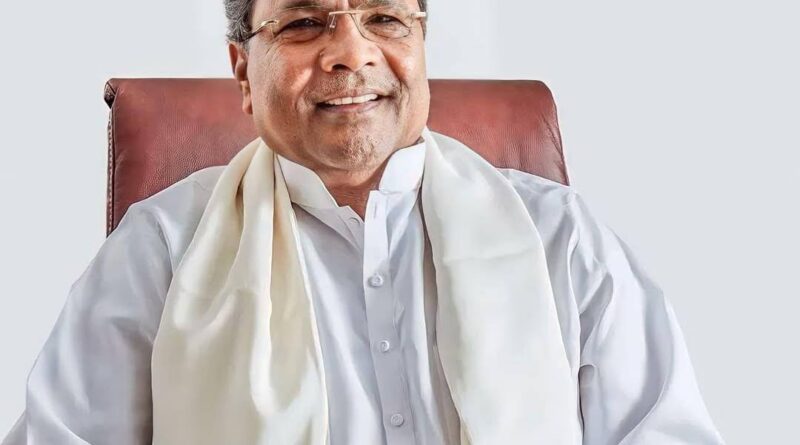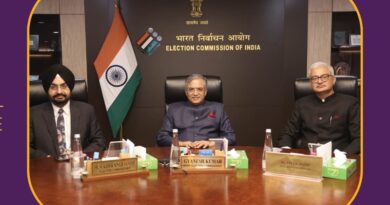Karnataka CM’s family cleared in MUDA land deal, But 50:50 scheme faces scam allegations
Judicial probe finds no fault in Siddaramaiah’s land compensation but uncovers widespread abuse in MUDA’s allotment process
NewsArc Bureau
Bangaluru:
A judicial inquiry led by retired Karnataka High Court judge Justice P N Desai has absolved Karnataka Chief Minister Siddaramaiah and his family of any misconduct in receiving 14 housing plots from the Mysore Urban Development Authority (MUDA) in 2021 as compensation for 3.16 acres of misused land. However, the probe exposed systemic flaws and potential fraud in MUDA’s 50:50 land compensation scheme, labeling it a mechanism ripe for exploitation. Here’s an in-depth look at the findings, the controversy, and what it means for Karnataka.
The MUDA Land Allotment Row
The issue revolves around MUDA’s 50:50 scheme, launched in 2020 under the Karnataka Urban Development Authorities Act, 1987, to compensate landowners for improperly used land by allocating 50% of developed plots in prime areas like Vijayanagar, Mysuru. In 2021, during the BJP’s rule, MUDA granted 14 valuable plots to Siddaramaiah’s wife, Parvathi, for 3.16 acres in Kesare village, originally bought by her brother-in-law, Mallikarjun Swamy, in 2004 and gifted to her in 2010 after being de-notified from a 1996 MUDA acquisition.
Allegations of profiteering worth ₹56 crore were raised by RTI activist Snehamayi Krishna and opposition parties BJP and JD(S), who claimed Siddaramaiah misused his influence. The accusations sparked a political storm, with calls for his resignation and investigations by the Lokayukta, Enforcement Directorate (ED), and the Desai commission.
Key Findings of the Desai Commission
Appointed in July 2024 to examine MUDA’s land allotments since 2006, the Justice Desai commission delivered its report in July 2025, with the following insights:
- Siddaramaiah’s Family Exonerated: The commission ruled that the allocation of 14 plots to Parvathi was lawful, as it compensated for MUDA’s unauthorized use of her land in Kesare village. The land, legally acquired and transferred, was subject to a 2017 resolution for compensation, which was executed in 2022 under the 50:50 scheme, consistent with other cases.
- 50:50 Scheme Misused: The commission slammed the 50:50 scheme as flawed and prone to abuse, noting that it was based on an illegal 2020 resolution that contravened Rule 16 of the 1991 Karnataka Urban Development Authorities Rules. Despite warnings from the state urban development department in 2021 and 2023, MUDA allotted 1,328 plots, including 125 in Vijayanagar, often to ineligible beneficiaries.
- Evidence of Fraud: The probe uncovered a surge in claims for alternate plots between 2020 and 2024, suggesting collusion among MUDA officials, realtors, and politicians. Some individuals received dozens of plots, which were quickly sold for profits, with price jumps of ₹10-15 lakh within months, indicating a deliberate scam.
- Action Recommended: The commission urged the cancellation of all allotments made after March 14, 2023, when the government ordered MUDA to stop the scheme pending new guidelines. It proposed a detailed investigation by a technical team from urban development and town planning to identify culprits and pursue civil, criminal, and departmental action. It also suggested clear guidelines and technology to enhance transparency.
Legal and Investigative Developments
The controversy prompted several probes:
- Lokayukta Investigation: Following a complaint by Krishna, Karnataka Governor Thawarchand Gehlot approved a probe against Siddaramaiah under the Prevention of Corruption Act in August 2024, upheld by the Karnataka High Court in September 2024. The Lokayukta closed the case in February 2025, citing insufficient evidence.
- ED Probe: In October 2024, the ED launched a money-laundering investigation, attaching 142 properties worth ₹300 crore linked to MUDA allotments, though none belonged to Siddaramaiah’s family. The Karnataka High Court stopped the ED’s probe against Parvathi in March 2025, a ruling affirmed by the Supreme Court in July 2025, finding no money-laundering evidence.
- Parvathi’s Action: Facing public scrutiny, Parvathi surrendered the 14 plots to MUDA in September 2024, a move Siddaramaiah cited as proof of their integrity.
Broader Implications
The commission’s report has far-reaching consequences:
- Political Ramifications: The clearance of Siddaramaiah’s family bolsters the Congress government’s defense against opposition attacks, which it labeled as politically motivated. However, the exposure of MUDA’s mismanagement has intensified calls for accountability, with the BJP and JD(S) demanding further probes, possibly by the CBI.
- Erosion of Public Confidence: The report highlighted how ordinary citizens struggle to secure even one MUDA plot, while ineligible parties received multiple high-value sites. This disparity has fueled demands for reforms to ensure fairness in urban development processes.
- Policy Reforms: The commission’s call for robust guidelines, a high-level oversight body, and digital systems to prevent fraud could lead to significant changes in how agencies like MUDA, now the Mysore Development Agency, operate, aiming to curb profiteering and enhance accountability.
Why This Matters
The MUDA case highlights the tension between compensating landowners and preventing systemic abuse in public land management. While Siddaramaiah’s family escaped censure, the commission’s findings reveal deep-seated issues in MUDA’s operations during 2020–2024, under both BJP and Congress governments. The push for investigations and cancellations of illegal allotments aims to restore integrity, but the issue remains a political flashpoint in Karnataka. As the government weighs the commission’s recommendations, the focus will be on rebuilding trust and ensuring equitable land policies for the future.




